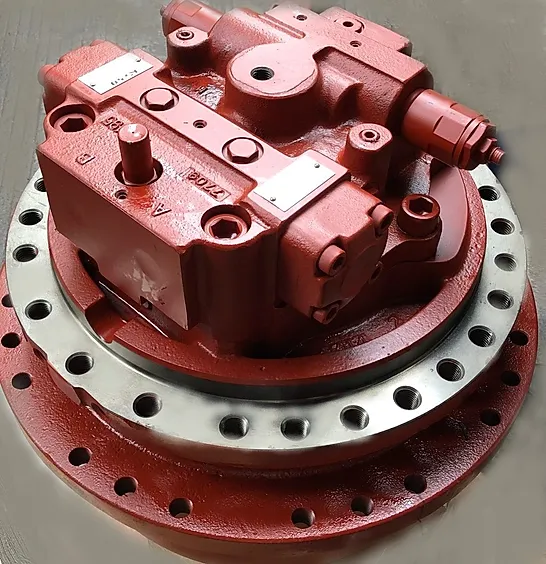The Optimal Motor for Excavators: An In-Depth Analysis
11/24/2018


Excavators are versatile machines used in various construction and mining applications. The choice of motor significantly influences their efficiency, reliability, and performance. Different types of motors are suited for different roles within an excavator, each with its unique advantages. This analysis explores the primary motors used in excavators and identifies the best-suited type for various applications.
Diesel Engines: The Powerhouse
Overview: Diesel engines are the most prevalent power sources for excavators. They drive the hydraulic systems, which in turn operate the boom, arm, bucket, and tracks.
Advantages:
High Torque: Diesel engines deliver the necessary torque for heavy lifting and digging operations.
Fuel Efficiency: Modern diesel engines are designed to be highly fuel-efficient, reducing operational costs.
Durability: Known for their robustness, diesel engines can withstand harsh working conditions and have a long service life.
Technological Innovations:
Turbocharging: Enhances power output and fuel efficiency.
Emission Controls: Advanced technologies like SCR (Selective Catalytic Reduction) and DPF (Diesel Particulate Filter) ensure compliance with stringent environmental regulations.
Conclusion: Diesel engines are ideal for applications requiring high power and durability. They are the preferred choice for most standard excavators due to their balance of performance and efficiency.
Hydraulic Motors: Precision and Power
Overview: Hydraulic motors convert hydraulic energy into mechanical energy, essential for the movement of excavator components.
Advantages:
Precision Control: Hydraulic motors provide precise control over the excavator’s movements.
High Power Density: Capable of delivering substantial power in a compact form, making them suitable for various applications within the machine.
Types of Hydraulic Motors:
Piston Motors: Known for their efficiency and durability, often used for main hydraulic functions.
Gear Motors: Simpler and cost-effective, commonly used in auxiliary systems.
Conclusion: Hydraulic motors are critical for the detailed control of excavator functions, ensuring smooth and precise operations. They are indispensable for the intricate movements required in excavation tasks.
Electric Motors: The Future of Excavation
Overview: Electric motors are becoming increasingly popular in hybrid and fully electric excavators, driven by the need for environmentally friendly solutions.
Advantages:
Zero Emissions: Electric motors produce no direct emissions, making them environmentally friendly.
Lower Noise Levels: Operate more quietly than diesel engines, ideal for urban construction sites.
Higher Efficiency: Electric motors can achieve greater efficiency, reducing operational costs over time.
Applications:
Hybrid Excavators: Combine diesel engines with electric motors to enhance fuel efficiency and reduce emissions.
Fully Electric Excavators: Entirely powered by electric motors, ideal for areas with strict emission regulations.
Conclusion: Electric motors are best suited for applications where environmental impact is a primary concern. They are becoming a viable option for both hybrid and fully electric excavators due to their efficiency and low emissions.
Stepper and Servo Motors: Precision Control
Overview: Stepper and servo motors are used in specific control systems within excavators, such as valve control and other precision components.
Advantages:
High Precision: Provide accurate control, essential for fine adjustments.
Quick Response: Capable of rapid response, enhancing the machine's overall responsiveness.
Technological Features:
Feedback Systems: Integrated with feedback mechanisms like encoders to ensure precise control over movements.
Conclusion: Stepper and servo motors are crucial for tasks requiring high precision and quick response times. They are typically used in auxiliary systems that demand exact control.
Final Thoughts
The best-suited motor for an excavator depends on the specific requirements of the application. For high power and durability, diesel engines are the optimal choice. Hydraulic motors are essential for precise control and power transmission. Electric motors are gaining traction for their environmental benefits and efficiency, making them suitable for hybrid and fully electric models. Stepper and servo motors are ideal for precision control tasks. Each type of motor brings unique strengths to the table, ensuring excavators can meet diverse operational needs efficiently.
GHS Motors
Focus on aftermarket travel motors and swing motors of construction machinery.
Get a quick quote
Customer service
© 2024. All rights reserved.
Powered by GlobalHydraulicSystem.com
Asset of Quanzhou Fulian Machinery Equipment Manufacturing Co., Ltd.
Order direct talk
